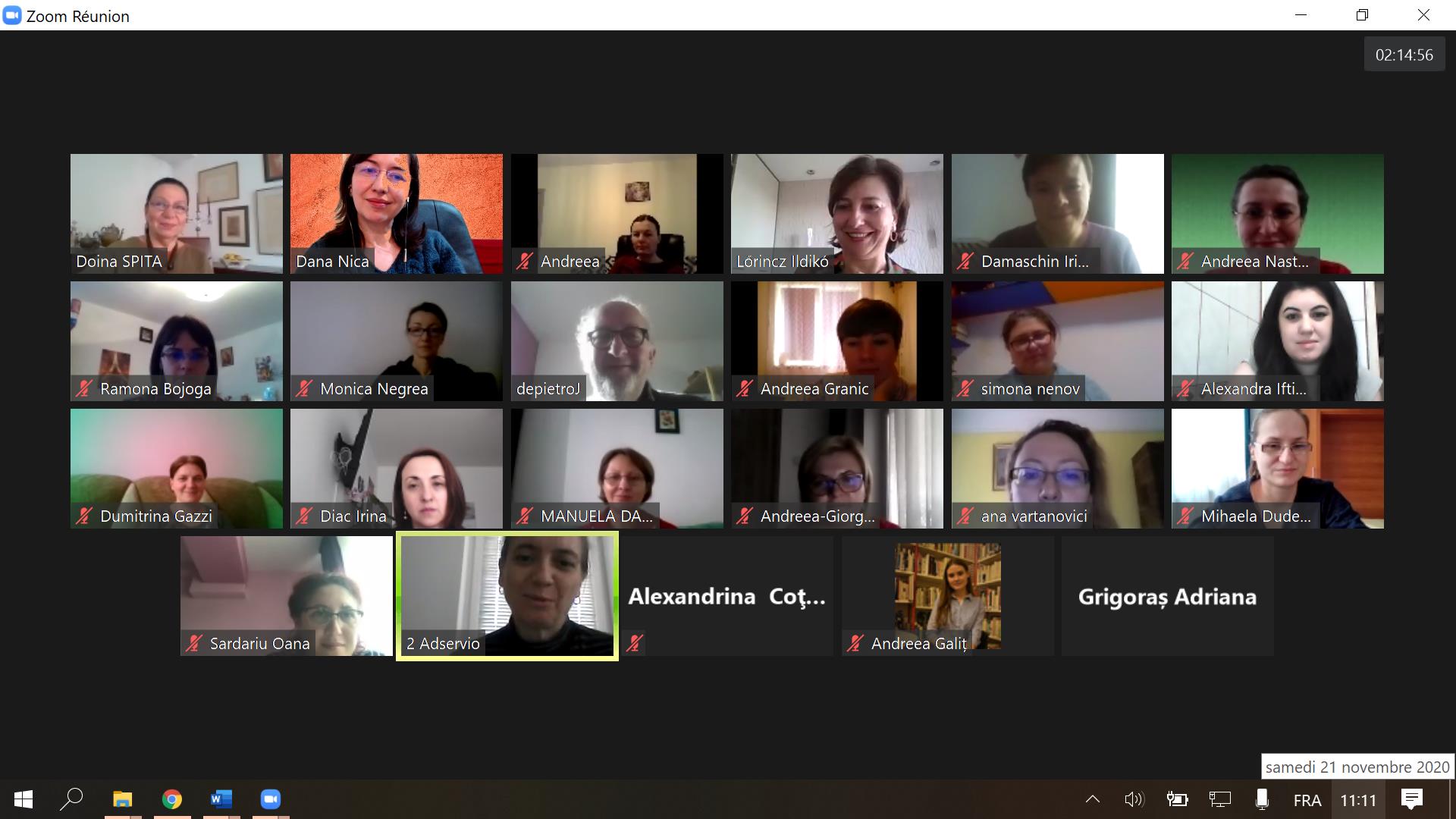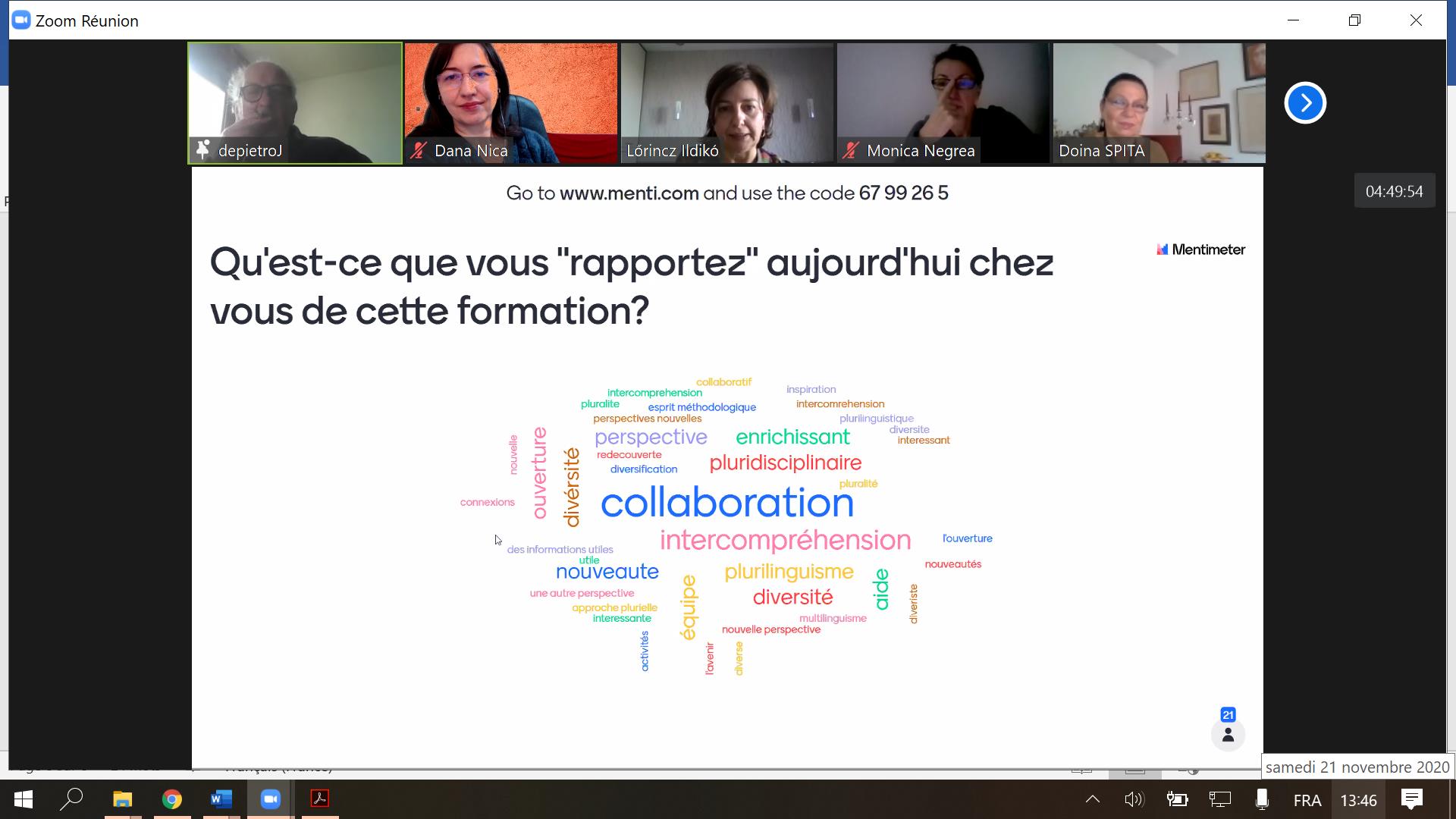Dates: 14 and 21 November 2020
Format: online event
Local organisation: Doina SPITA, Vice-President of the International Federation of Teachers of French (Fédération internationale des professeurs de français, FIPF), Iasi, Romania
ECML experts: Ildikó Lőrincz (Hungary), Jean-François de Pietro (Switzerland)
23 participants: 14 secondary school teachers of French as a foreign language, 3 subject teachers teaching in French, 3 students - future teachers of French as a foreign language, 3 university professors (Romania)
Language teachers in the 21st century need the knowledge and know-how to set up working arrangements that help learners to become aware of their plurilingual potential and then to develop it in multilingual communication situations, which are so frequent in both the real and virtual world.
However, it must be acknowledged that such an innovative methodology, adapted to the new challenges of language teaching and learning in the context of plurilingualism, occupies a very modest place in the initial and in-service training programmes of most countries. This is why it is a priority to involve the various teachers and future teachers of and in French in such a training module.
The workshop « Pluralistic approaches to languages and cultures in French as a foreign language and non-linguistic subjects in the French classroom (« Les approches plurielles des langues et des cultures en classe de français langue étrangère (FLE) et de disciplines non linguistiques (DNL) en français ») perfectly met these objectives. At the end of the event, the participants showed that they had understood the challenges of the new methodology, had integrated the opportunities of the Framework of reference for pluralistic approaches to languages and cultures (FREPA) and were even able to design specific autonomous modules and thus to enhance the value of pluralistic approaches and digital technology as a vector of learning motivation.
Doina SPITA, coordinatrice locale de la formation
Romanian version
Ca profesori de limbi ai secolului XXI, avem nevoie să știm să concepem dispozitive de lucru care să-i ajute pe elevi/studenți să-și descopere și conștientizeze potențialul plurilingv pentru a-l putea mai apoi valorifica în situațiile de comunicare multilingvă, atât de frecvente în lumea reală ca și în cea virtuală.
Trebuie să recunoaștem că o asemenea metodologie inovatoare, adaptată noilor provocări ale predării-învățării limbilor în contextul plurilingvismului, ocupă un loc foarte modest în programele de formare inițială și continuă din majoritatea țărilor. Acesta este motivul pentru care considerăm că a-i antrena pe profesorii sau viitorii profesori de franceză sau de DNL în franceză să participe la o asemenea formare reprezintă o prioritate.
Atelierul Les approches plurielles des langues et des cultures en classe de FLE et de DNL en français a răspuns perfect acestor deziderate. La terminarea sa, participanții au putut dovedi că au înțeles provocările noii metodologii, că au integrat oportunitățile CARAP-ului și că sunt capabili să conceapă module specifice autonome valorificând astfel beneficiile abordărilor pluraliste și ale digitalizării ca vectori de motivare a învățării.

